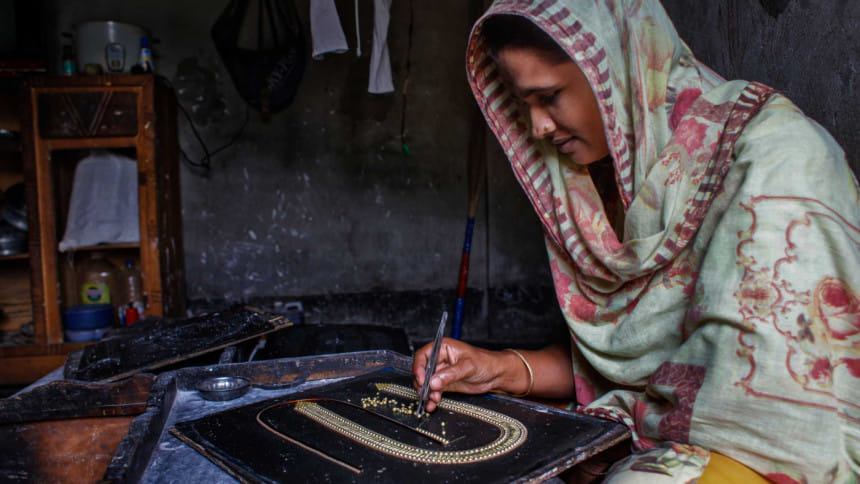New research reveals obstacles and opportunities for women-owned businesses in Bangladesh

When it comes to business ownership, women just need fair and equal access—something easier said than done. Centuries of common practices and processes have created fundamental gender-based access disparities. Financial marginalisation and limited property rights are also significant impediments to women business owners. These limit potential buyers and business partners from ever seeing innovative solutions that women-owned businesses have created in engineering, automobile parts, logistics or AI, for example. Add conscious and unconscious bias to the mix and it is often an uphill battle requiring specific focus to overcome the hurdles.
To better understand the obstacles that women business owners face across South Asia, the US Department of State's Bureau of South and Central Asian Affairs helped fund research on their status in corporate value chains and why so few of them win procurement contracts from corporate buyers. WEConnect International, a global non-profit that helps women-owned businesses compete in the global marketplace through capacity development and connections to large buyers, conducted the research as part of its "Women's Empowerment through Economic Inclusion" project, where 399 women-owned businesses and 199 large corporate buyers were surveyed.
Some key regional takeaways from the women-owned businesses surfaced. These are: women-owned businesses are unable to effectively articulate their unique selling propositions and differentiate themselves from competitors; the lack of access by women to business networks, due to socio-cultural barriers, continues to keep men's and women's affairs separate; and women are at a disadvantage when accessing the full range of debt and equity alternatives required to set up and grow a business.
In Bangladesh, lack of capital remains the most challenging issue with 90 percent of women business owners identifying it as the biggest impediment to running their businesses, while 48 percent indicated that a lack of connections to procurement and corporate buyers is a significant challenge.
From the end of the buyers, a few crucial issues came up that need to be dealt with. For starters, the majority of corporate buyers did not have policies or practices in place to source from women-owned businesses. Although many buyers indicated product/service quality to be a key determinant in the selection of suppliers, they could not effectively pinpoint if women-owned businesses were lacking in this area. The disconnect between the business language of the buyers and women-owned businesses is also a concern. On top of that, buyers are tied to corporate credit policies that are often at odds with the needs of women-owned businesses, which are smaller and unable to withstand the pressures of longer-term credit recovery. Finally, there is a poor understanding among buyers on Gender Inclusive Sourcing practices.
In Bangladesh, with respect to sourcing from women-owned businesses, 52 percent of buyers said they do not, 29 percent said they do, while 19 percent said they do not know. In addition, the majority of the respondents said they did not know how to find women-owned businesses.
This is a problem with a solution: Gender-inclusive sourcing is a proactive supplier diversity strategy that addresses gender gaps in value chains to increase access to markets for women-owned businesses. The research indicates that there is appetite for change.
The majority of buyers believe there is high potential to create market linkages, and 86 percent of corporate buyers are willing to buy from women-owned businesses when quality standards are met. Research suggests that there is a demand and supply match across many product and service categories in all countries. On average, 82 percent of corporate buyers are willing to learn about Gender Inclusive Sourcing practices and implement them in their organisations, and there is significant potential for women-owned businesses to become tier two and tier three suppliers to corporations.
As beneficial as it is to the business owners themselves, and the communities in which they operate, investing in women-owned businesses also makes dollars and sense for large organisational buyers. Small changes to large organisational buying practices such as inclusive sourcing policies can have a significant impact on the business and its ability to find the best products and services at the best price, especially from women-owned businesses.
Now is the time for Bangladesh to focus on empowering women and achieving gender equality. As the world slowly begins to adjust to a pandemic-stricken environment, harnessing the power of the entire business community to accelerate recovery and create opportunities for its citizens becomes the smartest strategy of all.
Rebecca Pearson is President & Chief Marketing Officer of WEConnect International.

 For all latest news, follow The Daily Star's Google News channel.
For all latest news, follow The Daily Star's Google News channel. 



Comments